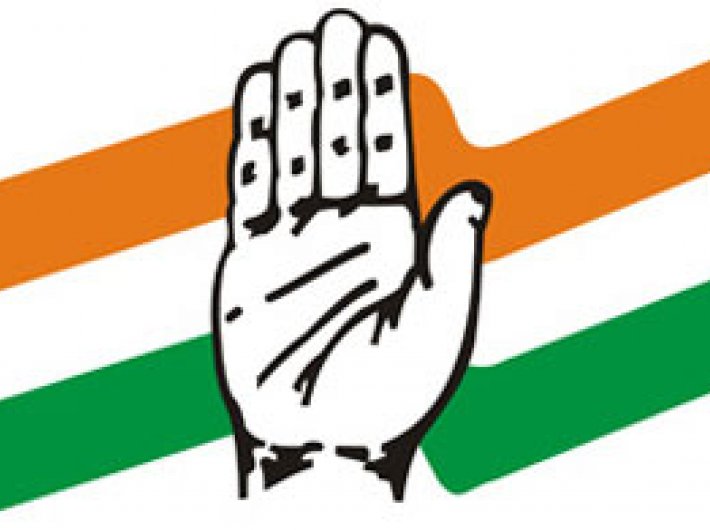The main opposition looks handicapped against a strong voice, a cohesive plan and a unity of purpose
The general elections of 2019 commence on April 11 and the last phase of campaigning in the 91 constituencies of 21 states is under way. Both prime minister Narendra Modi and Congress president Rahul Gandhi are addressing multiple rallies in the poll-bound constituencies in a final attempt to woo voters. The debates in the last phase of campaigning are important in the battle of perception and may well prove to be decisive. The BJP’s narrative has revolved around the major theme, national security, while the Congress has tried to bring back to the discourse the issues of unemployment, poverty, farm distress, women’s security as both parties try to capture the mind space of the voters as they finally decide on their preference
At least in the last one week, if not earlier, the BJP campaign strategy appears more tightly knit and its responses more surefooted. Much like 2014, the BJP has chalked out a clear agenda. There are different themes. The rhetorics are different too, but they come together like in a jigsaw puzzle. The BJP leaders align themselves to the larger meta-narrative.
The PM in all his speeches in the last week has focussed on national security. Since April 2, in different rallies in Bihar, West Bengal and Odisha he spoke on the security of the nation on land, sea and space, in some cases mentioning the word ‘national security’ as many as 21 times. He is seeking a second term to fulfil his unfinished agenda. For once, the PM himself has conceded that they have not fulfilled all that they set out to do in 2014, frequently adding that a single term was not enough to correct 70 years of misgovernance.
BJP president Amit Shah adopted a different trajectory and a more aggressive tenor. In a carefully calculated statement he promised that if voted to power again, the BJP would repeal Article 370 by 2020. He further said that it failed to do so in this term due to lack of majority in the Rajya Sabha. The comment immediately invited sharp reaction from leaders of the valley. PDP leader Mehbooba Mufti warned that “J&K's relations with India would end" in case Article 370 was abrogated. National Conference president Omar Abdullah claimed that Kashmir’s accession to India was conditional and its autonomy had been eroded over the years. In 1953 “we had bargained for our 'Sadar-e-Riyasat' and 'Wazir-e-Azam' (posts equivalent to the president and prime minister), and God willing, our party will bring it back,” he said. As the war of words between the parties in the valley and the BJP intensified, Shah’s comment had the desired effect. It brought back the familiar divide; separatist versus nationalists, ruling party versus the ill-intentioned coalition. The PM questioned the entire opposition over Abdullah’s comments, keeping alive the polarisation.
Finance minister Arun Jaitley has been assigned the task of puncturing the Congress’s electoral promises, which came to fore once the Congress tried to change the track of the discourse through two significant interventions in the last week.
On March 25, Rahul Gandhi announced the Nyuntam Aay Yojana (NYAY) which promises to give Rs 72,000 annually to the bottom 20% of the population of around 5 crore families. For the first time, an electoral promise became the subject of intense political scrutiny and debate. Economists from both sides of the ideological divide began to debate on the merits and the feasibility of the scheme. For, once it seemed that the Congress was setting the agenda. The announcement sent the BJP into a huddle and it unwittingly called upon the services of NITI Ayog vice chairman Rajiv Kumar who questioned the feasibility of the scheme. But not for too long.
On April 2, the Congress launched its election manifesto, with a host of promises including a separate ‘kisan budget’, a new version of MNREGA; and a promise of filling by March 2020 more than 22 lakh positions in different government departments that are vacant. But even before its details could be debated the BJP discovered in it something to its liking – the Congress’ promise of removing AFSPA and making sedition a civil offence. Within hours of the release of the manifesto, Jaitely dubbed the manifesto as “positively dangerous” to the security of the nation. Television debates that evening focused on not just the manifesto but also security concerns. All newspapers carried reports of both the Congress manifesto and the BJP’s response.
The Congress manifesto was crowd-sourced; the result of a long-drawn process. In a charged atmosphere where the focus was on security the Congress was caught napping on the AFSPA issue, so much so that its spokesperson hastily issued a clarification by the evening that the AFSPA will be withdrawn only after due consultation with the armed forces. The Congress actually offered the BJP a side door to veer the debate back its quadrant of strength – national security.
Clearly, as the election rhetoric gets more intense and heated, the BJP seems to be stealing the show. The BJP’s strength lies in a singularly focussed campaign. There is a clear delegation of functions and each leader speaks to a plan. Its campaign strategy is not just pro-active in setting the agenda, but also more confident in its response, even where it is on the back foot. The Congress is handicapped against a strong voice, a cohesive plan and a unity of purpose. Unless, the Congress finds its groove, it may be perennially catching up.
Dr. Madhava is associate professor & head of department of political science, SNDT Women's University, Mumbai.
